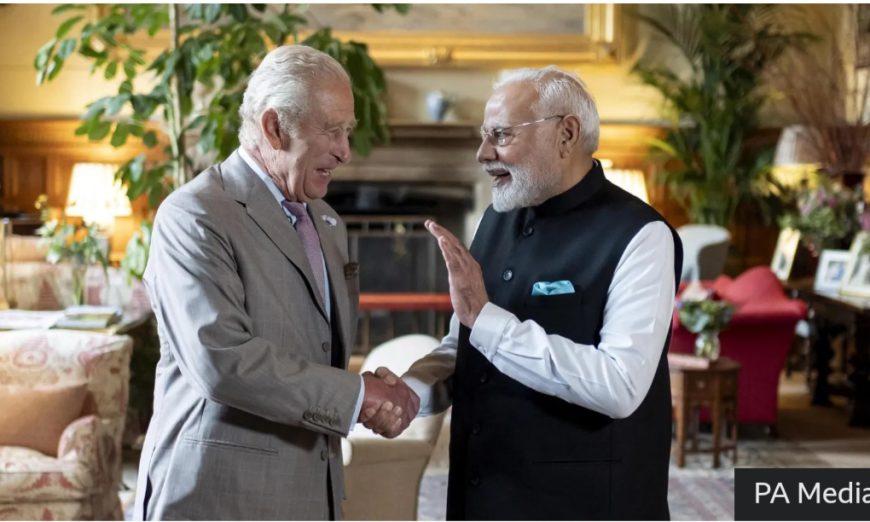Great Britain and India signed a free trade agreement on Thursday during a visit by Indian Prime Minister Narendra Modi, sealing a deal to cut tariffs on goods from textiles to whisky and cars and allow more market access for businesses.
Talks on the trade pact were concluded in May after three years of stop-start negotiations, with both sides hastening efforts to clinch a deal in the shadow of tariff turmoil unleashed by U.S. President Donald Trump.
The agreement between the world’s fifth and sixth largest economies aims to increase bilateral trade by a further 25.5 billion pounds ($34 billion) by 2040.
It is Britain’s biggest trade deal since it left the European Union in 2020 but its impact will be a fraction of the effect of leaving the orbit of its closest trading partner.
It is India’s biggest strategic partnership with an advanced economy, and it could provide a template for a long-mooted deal with the EU and for talks with other regions.
Both sides hailed as historic a deal which will take effect following a ratification process, likely within a year, after which firms such as whisky distiller Diageo and carmakers including BMW, Nissan, Aston Martin and Tata-owned Jaguar Land Rover could benefit from lower duties.
At his Chequers country residence, British Prime Minister Keir Starmer said there would be huge benefits for both countries, making trade cheaper, quicker and easier in a new global era for trade.
Mr. Modi met King Charles III and presented a tree sapling as part of his “Ek Ped Maa Ke Naam” environmental initiative during his audience with the monarch at his Sandringham Estate in Norfolk, eastern England, on Thursday.
Sir Keir said the agreement was “the biggest and most economically significant” trade deal Britain had made since Brexit.
“This deal is now signed, sealed, delivered,” he said.
“The UK has been negotiating a deal like this for many years, but it is this government that got it done, and with it, we’re sending a very powerful message that Britain is open for business, and that is already generating huge confidence.”
The deal will create more than 2,200 British jobs across the country, he said, as Indian firms expand their operations in the UK and British companies secure new business opportunities in India.
Sir Keir also said a trade deal was “not the extent or the limit of our collaboration with India” a country with which the UK has “unique bonds of history, of family and of culture, and we want to strengthen our relationship further”. Modi hailed what he called “a blueprint for our shared prosperity”.
“On the one hand, Indian textiles, footwear, gems and jewellery, seafood, engineering goods will get better market access in the UK…
“On the other hand, people and industries in India will be able to access products made in the UK, such as medical devices and aerospace parts, at affordable and attractive prices.”

